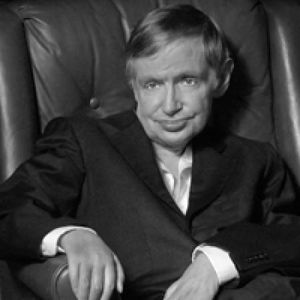UnNews:Hawking admits to faking disability
18 January 2013
DORSET, United Kingdom -- World famous physicist Stephen Hawking has admitted in an interview with Oprah Winfrey that there is nothing wrong with him, and that he "faked" his disability for many years.
"I view this situation as one big lie I repeated a lot of times," he said. "I made those decisions, they were my mistake and I'm here to say sorry." Hawking explained that, as a young university student, he became interested in the comic Uncanny X-Men and specifically the character Professor X, the wheelchair-bound telepath.
Speaking in unfamiliar dulcet tones, he told Winfrey, "I realised there was something very intriguing about this character, this man who had a powerful mind and a powerless body. It made me think about my own possibilities to win fame and renown as a physicist. I knew then that if I had a similar gimmick, it would make me much more interesting for the general public than all the other faceless, able-bodied physicists out there."
A bout of influenza was the key turning point in encouraging Hawking to implement his plan. "Before being diagnosed with the flu, I was competitive as an academic, but not so fierce," he said. "I felt like death for that week. After that I decided I wanted it all - scholarships, bursary grants, the lot. I wanted to win at all costs."
Scholarships came and were followed by wider renown after he finished his PhD. Hawking gave several presentations at national conferences and had a concise version of his thesis published in a local academic journal. He admitted the fame went to his head. "I wasn't a bully before that," he said, "Success changed me. I felt like I could say things using my voicebox that I would never have said with my own lips." In an emotional point in the interview, he admitted his first wife left him after he had deliberately run her down in his wheelchair.
The physicist's reputation has been blighted in the last few years by doubts about the veracity of his condition, but he denied that his fraud constituted "science's biggest doping programme", saying, "It was smart, but it was conservative, risk averse". He added that he felt it had not given him an unfair advantage; indeed, he saw it as a "level playing field" as many other professors sought fame through other affectations: "Scientists are an entirely bland group. Any professor you have ever met with eccentricities, tics, or a German accent was a complete liar and a fraud. Albert Einstein was from Cardiff."
Sources[edit | edit source]
- Leverage, "Lance Armstrong & Oprah Winfrey: cyclist sorry for doping" BBC, January 18, 2013
